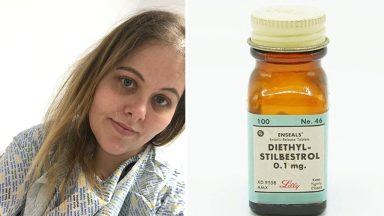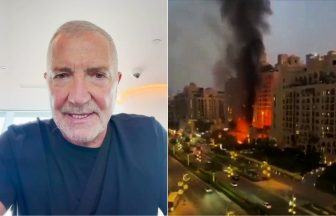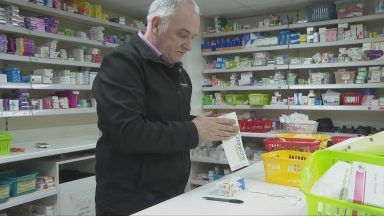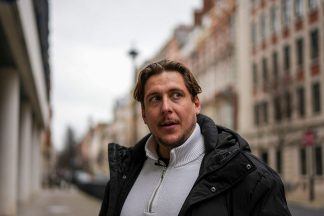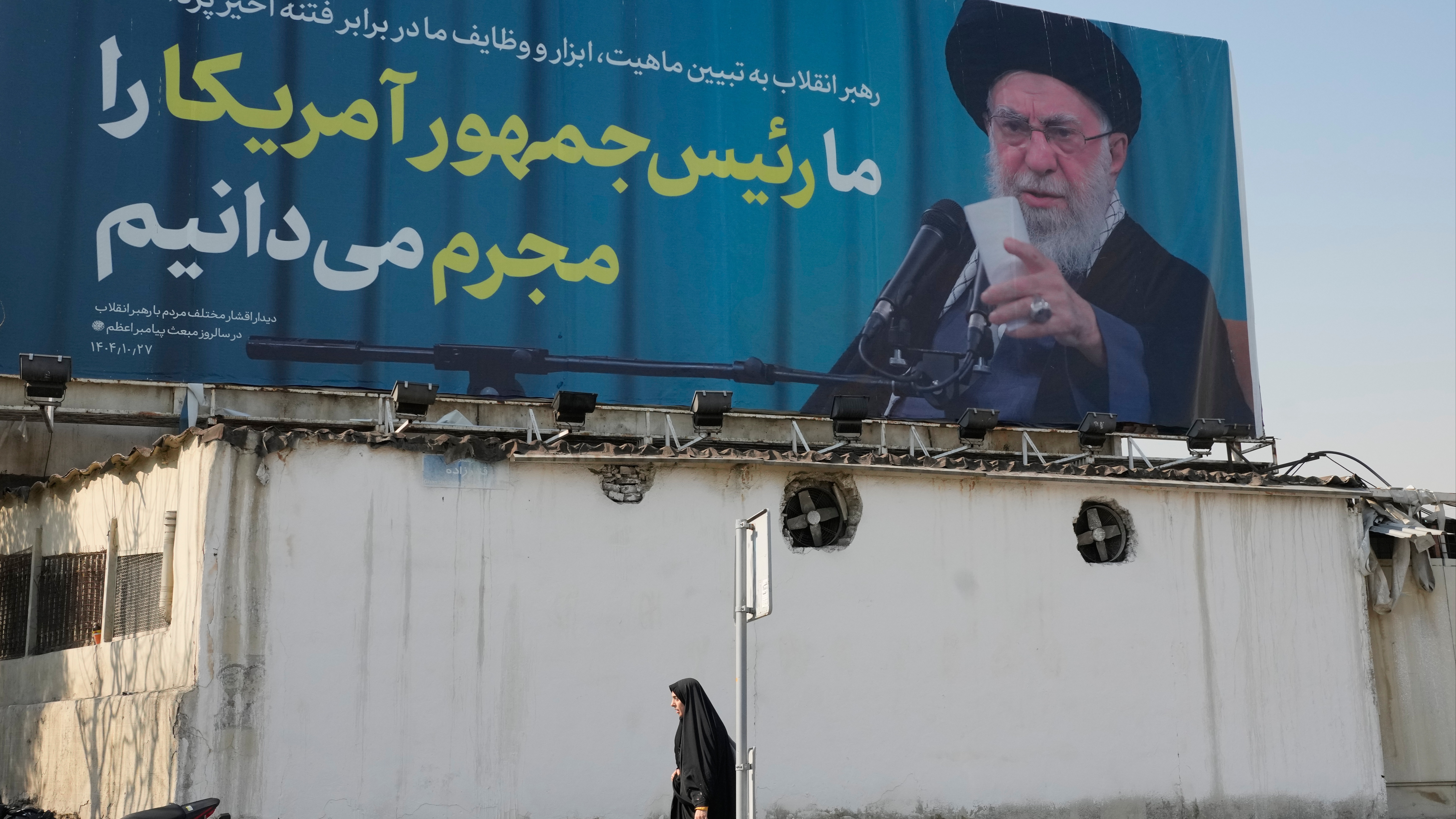There are calls for a public inquiry into the pregnancy drug DES after a year-long ITV News investigation exposed the scale of the medical scandal, Social Affairs Correspondent Sarah Corker reports
Hundreds of women who were exposed to a now-banned drug given on the NHS, dubbed “the hidden thalidomide”, are launching a campaign for a public inquiry and compensation, after a year-long ITV News investigation exposed the scale of the medical scandal.
Stilbestrol, commonly known as DES, was a synthetic hormone prescribed to an estimated 300,000 women on the NHS between the 1930s and 1980s to treat several issues, including miscarriage, until it was linked to rare cancers and infertility in the children of those who took it.
Tell us your story
Have you been impacted by the pregnancy drug scandal?
More than 300 victims have formed DES Justice UK following ITV News’ reporting, which highlighted the failures of the health authorities to act on safety warnings about the drug’s sinister side effects.
In a significant development, the Health Secretary Wes Streeting has said he has asked NHS England to “urgently work closely with local cancer alliances” to ensure that GPs are aware of the impact of DES and to make sure “those who could benefit from additional screening aren’t missing out”.
Mary Stuart, 83, was prescribed DES tablets by doctors in Newcastle in 1966 for six months after suffering multiple miscarriages.
Her daughter Helen Scanlan, now 58, was born the following year, but it wasn’t until she was a teenager that doctors started to realise the harm that the drug had caused.
Mary Stuart, 83, tells ITV News she ‘lives with guilt’, wishing she’d never taken the DES tablets she was prescribed while pregnant with her daughter Helen, who has suffered a lifetime of health issues
Helen began to suffer from debilitating pain from the age of 14 onwards. In her 20s, she was diagnosed with a misshapen womb and later cervical cancer.
“The pain just got so bad that we agreed the best thing was to have a full hysterectomy to take away all the danger and risk,” she told ITV News.
“I’m still in pain now, 20-plus years later. It’s now also the worry of what else goes wrong, and they said when I hit menopause, that would be the next danger time.
“I’m devastated that I haven’t had a family of my own; my two sisters have got children, but I haven’t. I’m very lucky that I have a stepdaughter, who I adore, but I do feel like I’ve missed out a lot.”
Helen’s mother told ITV News that she wished she’d never taken the tablets, and has lived with the guilt ever since.
The women who believe they were exposed to DES tell ITV News about health problems they fear may be linked to the drug. This is their story in their own words.
“She really suffered, and I was devastated,” Mary said. “It’s just what I’ve lived with for the last 50-plus years; I’ve always thought I caused Helen’s problems.
“I didn’t know. I took the tablets willingly because they said I would have a better chance of keeping the baby. I was advised to take it, and I took the advice.
“I’ve regretted it ever since, but I can’t turn the clock back, I’ve got to live with it,” she added.
Tell us your story
Have you been impacted by the pregnancy drug scandal?
Members of DES Justice UK will meet in the Houses of Parliament in Westminster on Tuesday to officially launch the group and meet some of the 30 MPs who are lobbying the government to take action.
Clare Fletcher, partner at Broudie Jackson Canter, representing the UK victims of the DES scandal, said: “It is time that the government took some responsibility for the mistakes of the past and set up a statutory public inquiry to look into how this was allowed to happen.
“It is a national disgrace that victims have been ignored, disbelieved and humiliated when all they wanted was fair treatment.
“It is crucial that these sufferers are finally given the truth and afforded access to the compensation they deserve.”
Clare Fletcher, partner at Broudie Jackson Canter, who is representing UK victims of the DES drug scandal, tells ITV News ‘this has been a regulatory failure at the highest level’
DES, originally called Diethylstilboestrol, is a synthetic oestrogen invented in Britain in 1939. Research suggests pregnant women who took DES may have a 30% higher risk of breast cancer.
Their daughters, known as DES daughters, exposed in the womb, are at an increased risk of clear cell cancer of the cervix and vagina, which is not picked up by routine screening.
Some gynaecologists are now calling for those guidelines to be urgently changed to include annual screening.
Dr Wael Agur, consultant gynaecologist, told ITV News the screening programme “needs to be expanded”.
“The current screening arrangements would pick up the standard type of cancer, the common types of cancer,” he said.
“For the women that are DES exposed, they present with an additional risk of a rare type of cancer that requires more frequent screening and also with additional tests to be able to pick up this rare type.”
Consultant Gynaecologist Dr Wael Agur tells ITV News the screening programme “needs to be expanded” to help protect DES-exposed women
Sharon Hodgson, the Labour MP for Washington and Gateshead South, who advocates for women harmed by other medical scandals, said GPs and doctors need to be educated about DES amid concerns many of them had never heard of the drug or its associated harms.
She told ITV News: “When they go to their doctors and try to start this journey to find out what’s going on, the GPs and doctors know nothing about this and haven’t heard of this.
“They’re literally googling ITV News coverage to find out ‘what is this’. I’ve heard this so many times with vaginal mesh, valproate, and primodos scandals.
“There’s got to be a better way of professional development by educating the medical workforce so that when these scandals come along, women don’t find themselves having to educate the doctor that they’re seeking help from.”
Alongside a public inquiry, campaigners are calling for an information campaign to ensure healthcare professionals are aware of DES, medical research into the long-term, intergenerational effects of the drug, targeted screening for cancers and fertility issues and a compensation fund.
Our investigation also discovered that the Medicines Regulator (MHRA) had misled the public for up to 25 years about when the drug was withdrawn and issued an apology last month.
Sharon Hodgson, the Labour MP for Washington and Gateshead South, who advocates for women harmed by other medical scandals, said GPs and doctors need more education about DES exposure
The MHRA had falsely claimed that doctors were advised to stop using the drug for use in pre-menopausal women in 1973.
In September 2025, it admitted that information was incorrect, and the drug was not stopped for use in pregnancy until the 1980s, more than a decade after cancer risks were known.
A Department of Health and Social Care spokesperson said: “There are harrowing accounts of harm caused by the historic use of Diethylstilboestrol (DES), with some women still suffering from the associated risks of this medication which have been passed down a generation, and not feeling adequately listened to or supported.
“The Secretary of State has been clear he has been looking seriously at this legacy issue and carefully considering what more the government can do to better support women and their families who have been impacted.
“As a result, he has asked NHS England to urgently work closely with local cancer alliances to make sure that GPs are aware of the follow up guidance for those exposed to DES, so that those who could benefit from additional screening aren’t missing out.”
Information or support about the issues raised in this report can be found online:
- Information on Diethylstilbestrol (DES) Exposure and Cancer
- Legal firm Broudie Jackson Canter has set up a campaign page for DES exposed people
- There is information on cervical cancer and breast cancer on the NHS website
- If you think you need medical help right now, please contact your GP or visit 111 online, or call 999 in an emergency.
Tell us your story
Have you been impacted by the pregnancy drug scandal?
Follow STV News on WhatsApp
Scan the QR code on your mobile device for all the latest news from around the country



